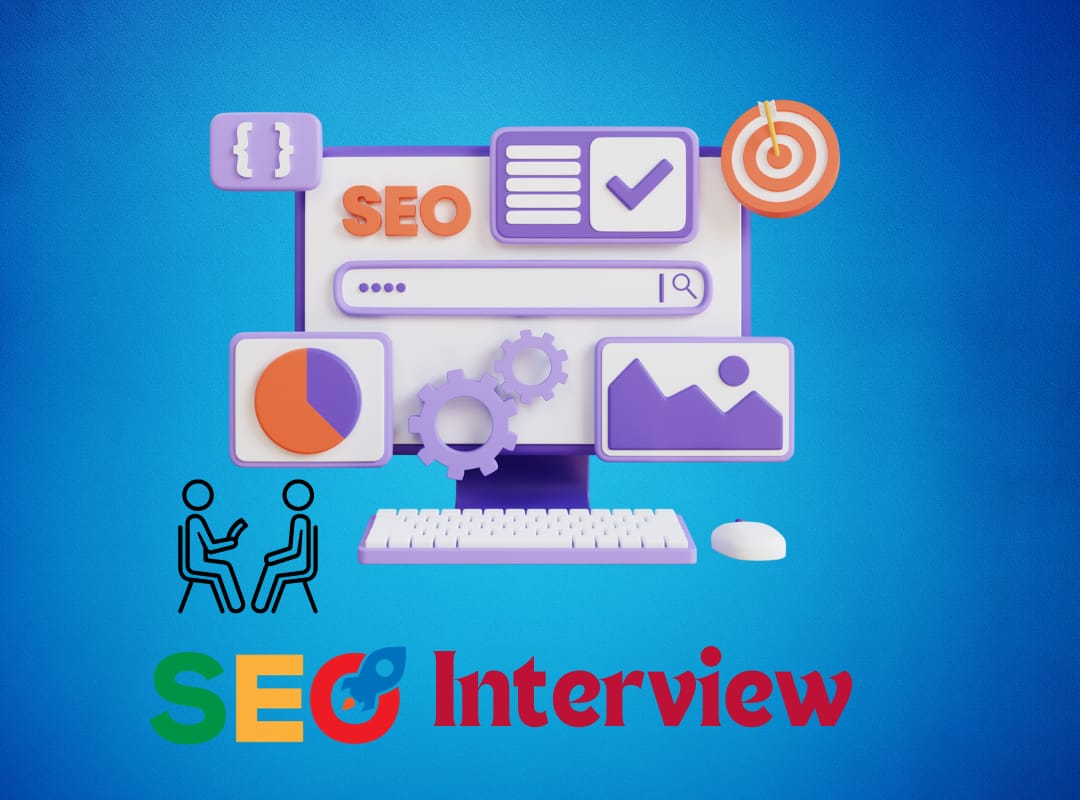AI’s Impact on Modern Recruitment: Streamlining the Hiring Journey
Artificial Intelligence (AI) is changing how companies hire people, making the recruitment process faster, simpler, and more effective. Over the years, hiring has typically involved a lot of time-consuming tasks, such as reviewing resumes, conducting interviews, and coordinating schedules.

With the introduction of AI , these tasks can now be automated or improved, saving both time and resources for companies while improving the candidate experience. Let’s explore how AI is transforming modern recruitment and making the hiring journey more efficient for everyone involved.
1. How has AI transformed the recruitment process?
AI has made recruitment faster and more efficient. It can screen resumes, match candidates with job openings, and even conduct initial interviews. This saves time for recruiters, allowing them to focus on more strategic tasks, like building relationships with candidates.
Q2: What are the benefits of using AI in hiring?
AI reduces the time it takes to find the right candidates and minimizes bias in the hiring process. It can analyze a candidate’s skills and experience more objectively, ensuring that decisions are based on data rather than personal preferences. Plus, AI tools can automate repetitive tasks like scheduling interviews, making the whole process smoother.
3. Can AI make the recruitment process completely unbiased?
Not entirely. While AI can help reduce bias by focusing on skills and qualifications, it’s only as unbiased as the data it’s trained on. If the training data has biases, the AI might unintentionally reflect them. It’s still crucial for humans to review decisions and ensure fairness.
4. How does AI improve the candidate experience?
AI helps create a better experience by speeding up the application process and keeping candidates informed. For example, chatbots can answer questions 24/7, and AI-powered platforms can provide personalized job recommendations. This makes candidates feel valued and keeps them engaged.
5. Is there a downside to using AI in recruitment?
Yes, there are a few challenges. Over-reliance on AI might lead to overlooking great candidates who don’t fit the exact parameters set by the system. Additionally, candidates may feel frustrated if the process feels too impersonal or if they can’t reach a human recruiter when needed.
6: What’s the future of AI in recruitment?
AI will likely become more advanced, offering even better candidate matching and predictive analytics. However, it’s not about replacing humans. Instead, it will continue to complement human recruiters, helping them make better decisions and create a more personalized experience for candidates.
1. Speeding Up Resume Screening
One of the most time-consuming parts of hiring is going through hundreds or even thousands of resumes. It can be overwhelming for human recruiters to manually sift through this information, often causing delays in the hiring process.
AI-powered tools, like Applicant Tracking Systems (ATS), are now being used to automate resume screening. These tools scan resumes for specific keywords, qualifications, and skills that match the job description. By doing this, AI can quickly sort out the most relevant candidates and push them to the next stage of the process. This saves recruiters a lot of time and ensures they are only reviewing the best-suited applicants.
Additionally, AI can help reduce errors during this step. Human recruiters, due to time pressure or fatigue, may sometimes overlook qualified candidates. AI systems, on the other hand, maintain consistency and accuracy throughout the process. As a result, companies can expect a faster and more reliable shortlisting process.

2. Improving Candidate Matching
In traditional recruitment, matching a candidate to a job often depends on the recruiter’s ability to assess a person’s skills, experience, and personality. AI, however, can take this a step further by analyzing vast amounts of data to make better matches between candidates and roles.
AI-driven systems can assess various factors, such as work experience, education, and even online behavior to find the best possible match for a job opening. These systems use advanced algorithms to analyze candidates’ profiles in greater detail, matching them not only based on their qualifications but also their potential fit within a company’s culture.
By leveraging data, AI tools help recruiters identify candidates who may not have been obvious choices but have the skills and qualities that make them suitable for the role. This means companies can find better fits for their open positions, leading to higher job satisfaction and employee retention rates in the long term.

3. Enhancing Candidate Experience
Job seekers today expect a smooth and transparent recruitment process. Long waiting times for responses, unclear communication, and lack of updates can turn off potential candidates. AI can greatly enhance the candidate experience by making the entire journey quicker and more interactive.
For example, AI-powered chatbots can be used to interact with candidates in real-time, answering their questions about the job, guiding them through the application process, or providing updates on their application status. These chatbots work 24/7, ensuring candidates get immediate assistance, regardless of time zones or working hours.
Moreover, AI tools can be used to provide personalized recommendations to job seekers. For instance, AI systems can analyze a candidate’s profile and suggest job openings that align with their skills and preferences. This not only saves time for job seekers but also helps companies attract more relevant candidates.

4. Reducing Unconscious Bias
Bias in hiring is an issue that many companies are trying to address. Traditional hiring processes can sometimes be influenced by unconscious bias, where recruiters may favor candidates based on factors such as age, gender, ethnicity, or background, rather than focusing purely on qualifications and skills.
AI can help reduce this bias by making data-driven decisions. When AI systems are trained to prioritize skills and experience over personal characteristics, they can provide a more objective and fair evaluation of candidates. For example, AI algorithms can anonymize candidate information by removing names, photos, and other personal details from resumes before they are reviewed by human recruiters. This ensures that only relevant qualifications are considered during the screening process.
It’s important to note, however, that AI itself must be programmed carefully to avoid embedding existing biases into its algorithms. If not properly managed, AI could potentially replicate the biases present in the data it is trained on. To counter this, companies need to continuously monitor and adjust their AI systems to ensure they remain fair and unbiased.

5. Streamlining Interview Scheduling
Coordinating interviews can often be a logistical headache, especially when dealing with multiple candidates, interviewers, and time zones. AI can help streamline this process by automating the scheduling of interviews.
AI-powered scheduling tools can analyze calendars and suggest suitable time slots for both the interviewer and the candidate. Some systems can even automatically adjust schedules if conflicts arise, eliminating the back-and-forth communication that can slow down the process. This not only saves time but also ensures that interviews are scheduled as quickly as possible, speeding up the overall recruitment timeline.
6. Assessing Candidates Through AI-Driven Interviews
AI has also entered the interview stage of recruitment, particularly through AI-driven video interviews. In these interviews, candidates are asked to answer a set of pre-determined questions on video, which are then analyzed by AI systems.
The AI analyzes factors such as speech patterns, word choice, and even facial expressions to evaluate a candidate’s communication skills, confidence, and overall suitability for the role. While this may sound advanced, these tools are designed to assist human recruiters by providing an additional layer of analysis
.
However, it’s essential to balance AI-driven interviews with human judgment. While AI can offer insights into a candidate’s performance, it should not be the sole decision-maker in the hiring process. Human recruiters are still needed to interpret the results and make final decisions.
7. Supporting Diversity and Inclusion
AI can play a crucial role in promoting diversity and inclusion in the workplace by helping companies attract a wider range of candidates. AI tools can analyze data from various sources to identify potential candidates from diverse backgrounds and encourage them to apply for roles. Additionally, AI systems can be used to monitor and report on the diversity of applicants, providing valuable insights into whether a company’s recruitment practices are inclusive.
By using AI to focus on skills and qualifications rather than personal characteristics, companies can create a more diverse and inclusive hiring process. This not only benefits the organization by bringing in diverse perspectives and ideas but also helps create a more equitable job market.
8. Saving Time and Reducing Costs
One of the most significant benefits of using AI in recruitment is the time and cost savings it offers. By automating tasks like resume screening, interview scheduling, and candidate matching, companies can significantly reduce the amount of manual work involved in hiring. This, in turn, helps companies fill open positions more quickly and reduces the overall cost of recruitment.
For smaller businesses, in particular, AI can be a game-changer. It allows them to compete with larger companies by giving them access to the same advanced recruitment tools, even if they don’t have a large HR department.
Conclusion
AI is undoubtedly transforming modern recruitment by streamlining the hiring journey for both companies and job seekers. From faster resume screening and better candidate matching to enhancing the candidate experience and promoting diversity, AI-powered tools are making the hiring process more efficient and effective. While human recruiters remain essential in interpreting data and making final decisions, AI is providing the support needed to improve the overall recruitment process.
As AI technology continues to evolve, it will likely play an even more significant role in shaping the future of recruitment, offering even more innovative solutions to streamline hiring and help companies find the right talent.


